Cash, Kisses and Karaoke: Why the War on Covid must not become a War on Cash
Covid-19 will be mobilised by the financial industry to push their War on Cash even further, leaving us ever more ensnared within their private digital money empire

Cover image credits: Barbara Bernát

For a number of years I have investigated– and warned about – the War on Cash. This is the slow process by which the banking sector, payments industry, financial technology companies and governments have – in subtle and not-so-subtle ways – tried to wean people off the physical cash system, and to onboard them into the bank-run digital payments system.
Calling it a ‘war’ is controversial, because in the mainstream this process is often described as a peaceful and organic bottom-up move towards a ‘cashless society’ driven by ordinary people. I, on the other hand, characterise it as an aggressive and artificial top-down move towards a ‘bankful society’, driven by the financial industry and many governments. The bankful society is one in which the banks (or platforms built on top of them, such as Paypal) intermediate between even the smallest of payments, seeping between buyers and sellers like a payments chaperone. This consolidates and expands the power of the banking system, gives them enormous amounts of data, and enables them to enter into mega-deals with mega-tech platforms, who also rely on a turn away from cash to facilitate the mega-automation they seek.
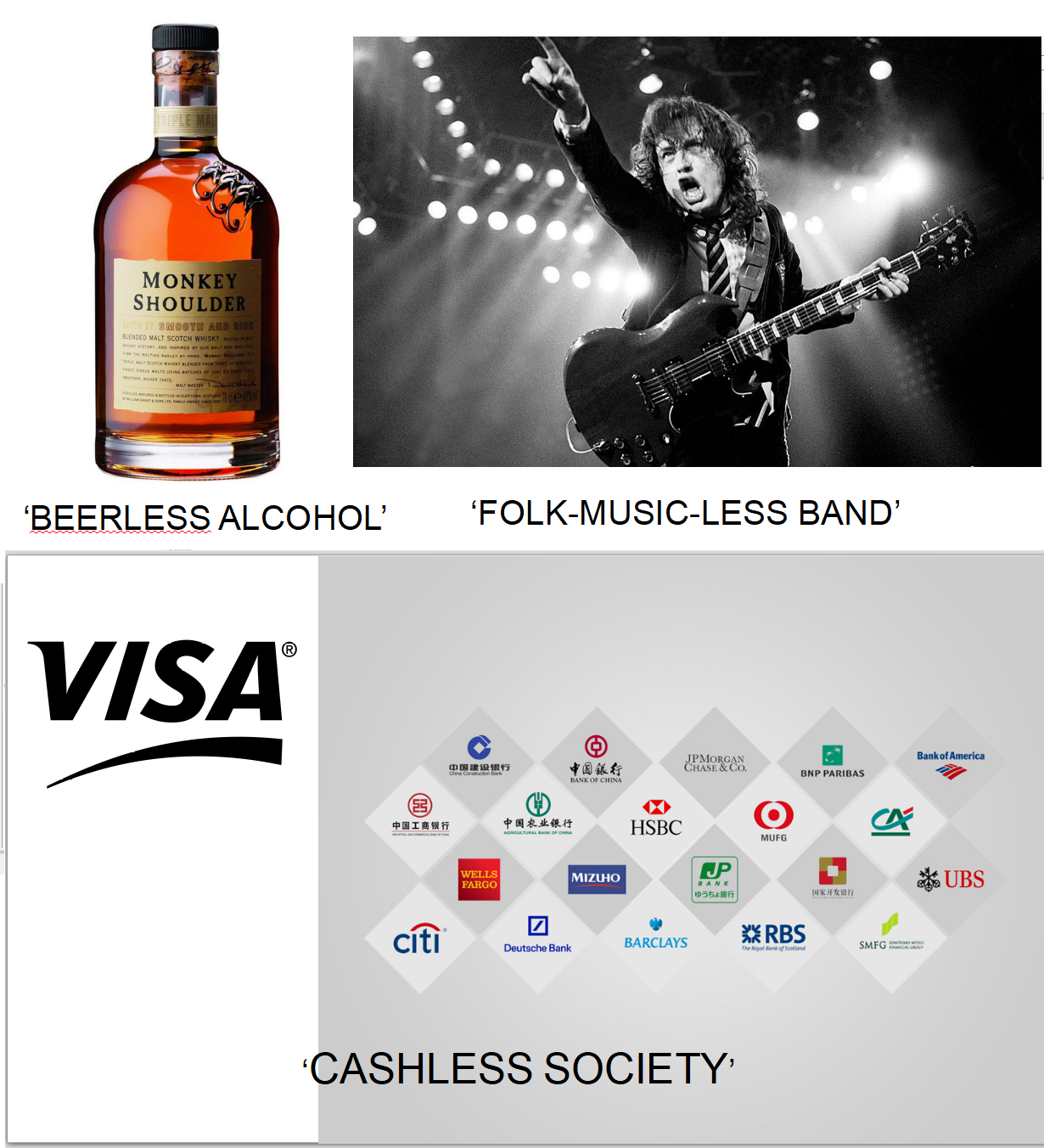
The War on Cash prior to Covid-19
The War on Cash has sometimes taken the form of outright attacks (such as when the Indian government aggressively degraded the Indian cash system during their so-called ‘demonetisation’). More often, however, it has taken the form of consistent propaganda (Visa openly talks about their campaign to make cash seem ‘peculiar’ to people), amidst a subtle drive to engineer the market environment in such as way as to make cash increasingly inconvenient to use (such as shutting down ATMs). As these processes unfold, they catalyse network effects in which we find ourselves ‘spontaneously’ beginning to ‘choose’ digital payment (in much the same way that supermarkets inspire kids to ‘choose’ chocolates by placing them at eye level by the checkout counters). Once this catalysing happens, those who wish to resist this turn to the bank system find themselves increasingly forced into compliance by others who have succumbed to it.
But many people still refuse to toe the official banking-meets-tech line, and wish to keep using cash, despite the fact that the economic system around them is increasingly being loaded against this choice. I and others such as Which?, Ralph Nader, Positive Money, and The RSA have come out in praise of cash. We see it as an inclusive, privacy-preserving, public means of payment. I see the aggressive spread of digital payments not only as an attempt to fully privatise the payments system, but also as an attempt to ‘gentrify payments’ – to tell people that they are criminal or dodgy if they do not wish to be absorbed into the giant generic chain institutions of global finance. The payments industry – underpinned by the global banking sector – has managed to convince states that it is noble, or even humanitarian, to make ever-greater numbers of people dependent on the banking system (a system that by no means has their interests at heart), under the cry of ‘financial inclusion’.

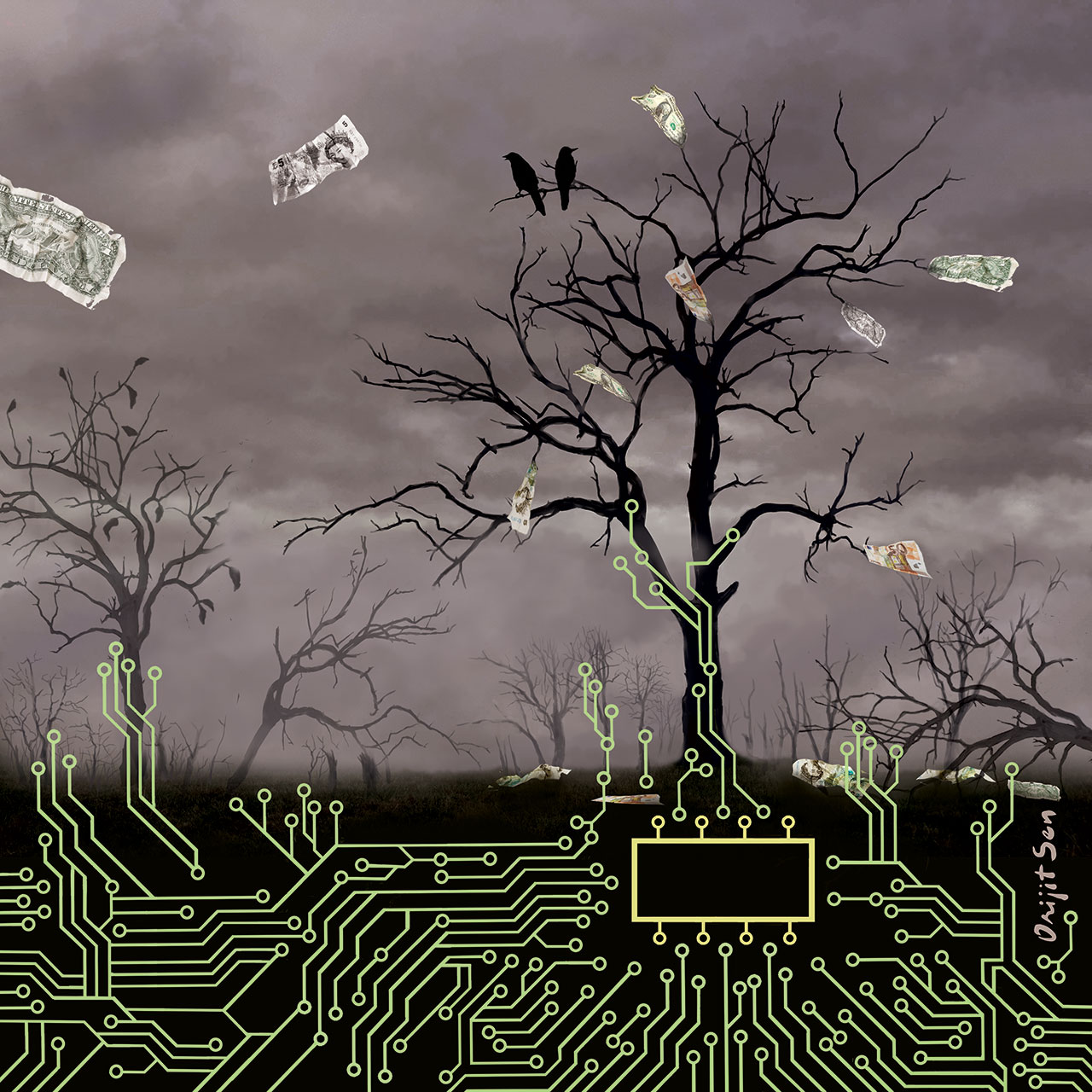
Cash is in fact the only form of state money we can hold. In much the same way that casino chips are privately-issued promises (issued by a casino) for cash we might hand in to them as we enter a casino, the 'money' we see in our bank accounts is actually ‘digital chips’ issued to us by those commercial banks. These chips are promises - or IOUs - promising us access to state money. We can pass these digital chips around within the private ecosystems controlled by the banking sector, but every time we go to the ATM we are redeeming those chips to exit the banking system (like walking out of the casino). It follows then, that as ATMs get shut down, our ability to exit the banking system goes down too. We are getting trapped inside their private ecosystems. This is in their commercial interests, which is why for many years the private payments industry has used whatever they can to demonise the public cash system, which competes with them. Rather than being showcased as an inclusive form of public payment, cash is continuously accused of facilitating crime and tax evasion, and has long been cast as unhygienic and ‘dirty’.
The War on Cash After Covid-19
Now, with the onset of the Covid-19 pandemic, this latter argument suddenly seems a lot more visceral to many people. Supermarkets, painfully aware of a duty to prevent the spread of the virus, openly order people to turn away from the public cash system and to use the private banking system for payments (‘please use contactless payment’). It is vital that we always criticise and remain vigilant against the growing corporate domination that surrounds us, but this critique has suddenly taken a back seat to the immediate task of slowing the disease spread.
For big corporates, therefore, this has been a perfect opportunity to consolidate and extend their power. Many of them are already too-big-to-fail and governments always rush to protect and promote them first in the midst of a crisis. We have already seen players like Amazon massively expand their power during Covid (as people stuck at home under lock-down turn even more to the digital giants who already dominate the cyberspace realm), but in the financial sector this same enforced ‘turn to the digital’ is a huge commercial win for the private payments industry (aka. banking industry). They will use Covid forcefully to suppress and undermine cash even more than they already have.
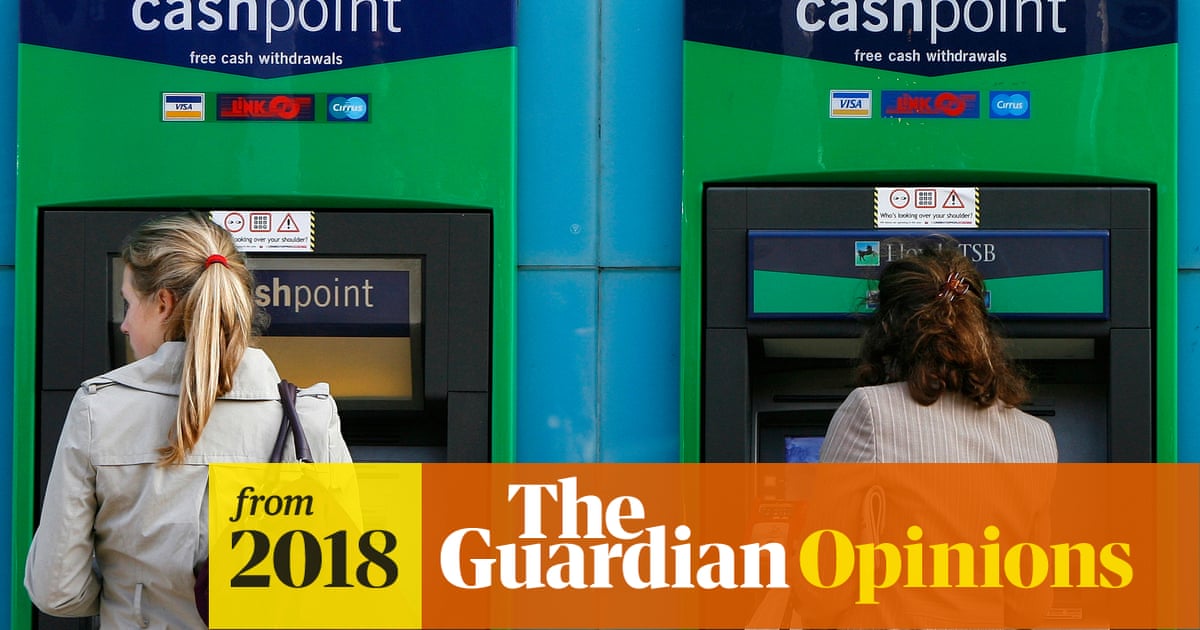
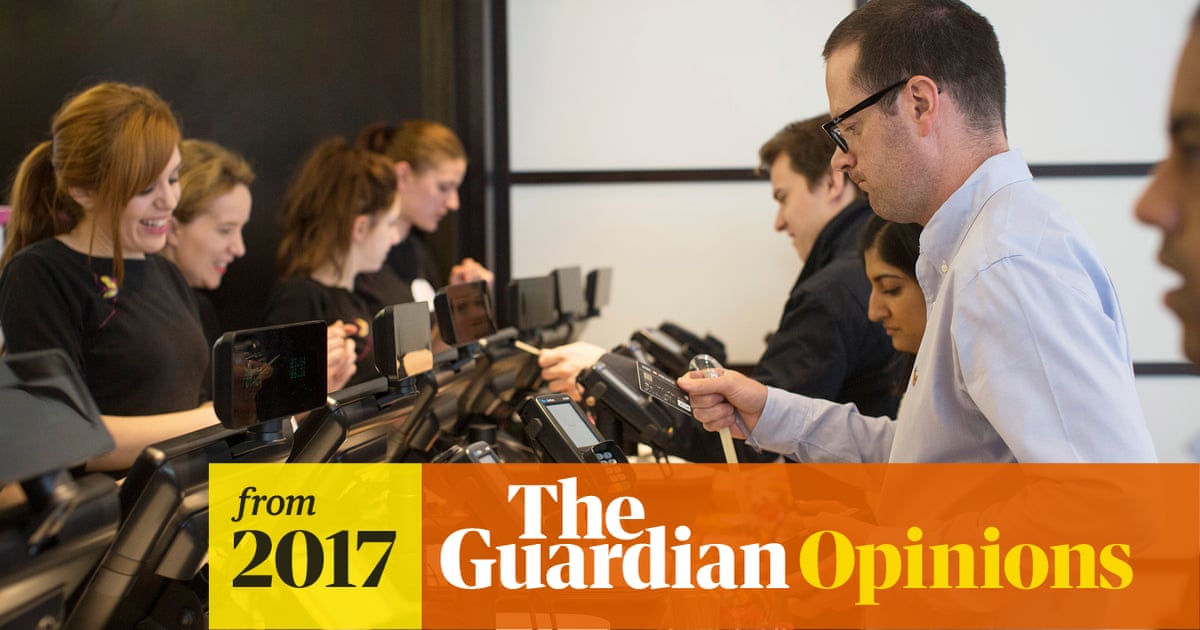
The rise of Amazon and the rise of the digital payments industry is no co-incidence. These players have natural synergies as they all seek to create vast systems of interlocking automation. They wish for, and benefit from, a world in which economies are remotely coordinated via their huge datacentre systems, rather than being negotiated through face-to-face interaction between people on the street. And, while Covid might have forced various forms of positive economic soul-searching amongst people, it has simultaneously played directly into the hands of any player that seeks automation-at-a-distance, which includes both Big Tech and Big Finance.
Indeed, Covid is far more than a blow to the cash system. It is a blow to the face-to-face physical world, which includes cash, but also hugs, doorknobs, shared microphones at karaoke evenings, drunken pub conversations, kissing Tinder dates, dancing at weddings, dancing at beach parties, dancing at church, bench-pressing in the gym, and sharing a cigarette with a friendly stranger you meet outside a nightclub. Yes, cash is another thing in the physical world, and yes, as a physical object it does have the ability to carry viruses. But again, so does every supermarket item, public transport system, Uber car, and – for that matter – digital payments PIN pad.
As an aside, it is in fact not apparent that cash is actually a particular risk compared to other objects in the world. As the Covid pandemic took off, the German Bundesbank (the country's central bank) issued a press release stating that ‘Cash poses no particular risk of infection for public’, noting that “the probability of becoming ill from handling cash is smaller than from many other objects used in everyday life”. They cited infectiologist (and head of the Frankfurt am Main Health Office) René Gottschalk, who argued that banknotes do not lend themselves to being an infection channel for coronavirus.
Nevertheless, a sloppy journalist at the British newspaper The Telegraph misrepresented the World Health Organisation by writing an opportunistic story claiming that "Dirty banknotes may be spreading the coronavirus, WHO suggests". This sent the world’s media on an anti-cash bonanza, as they parroted the Telegraph story. This, in turn, prompted the WHO spokesperson to issue a statement saying ‘We did NOT say that cash was transmitting coronavirus’. The damage, however, was already done - it was now official fake news spreading through Daily Mail articles shared on social media and Whatsapp groups.
In the UK, the banking industry took advantage of this, quickly arranging for a rise in the contactless payments limit via the banking lobby group UK Finance. Customers spooked by the dubious anti-cash news articles suddenly found solace in the arms of the banking sector.
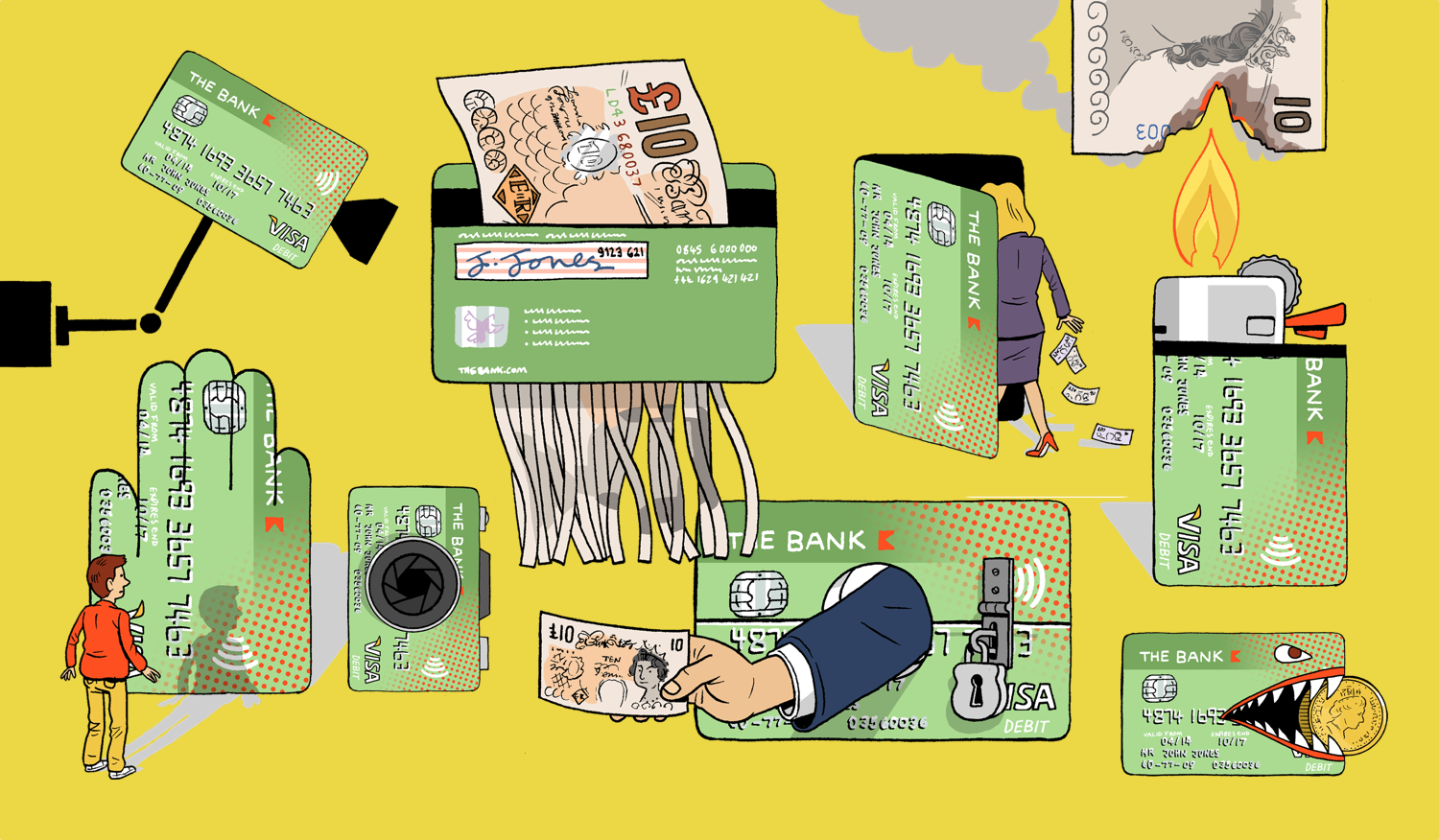
The Hidden Side of the Coin
Despite this, statistics show that there was a strong spike in cash withdrawals at the announcement of lock-down. This tells us something very interesting: in the midst of a crisis people value the fact that ‘cash does not crash’. You use cash to exit the unstable and failure-prone banking system, which is why people rush to hoard cash at news of an impending hurricane or war. Central banks refer to this as ‘precautionary demand for cash’.
This alerts us to a broader point, which is that the risks around Covid extend far beyond the actual virus. It has set in motion a major economic downturn, and not only are banks increasingly unstable in the midst of an economic downturn, but they themselves seek to pull back from giving service to those they deem risky. This means they retract lending from small businesses and ignore poorer people who are not as profitable to them as richer people. These people include those who are disparagingly referred to as ‘the unbanked’ or 'the underbanked', whose numbers increase during a crisis. This is to say that anti-cash rhetoric from media, supermarkets and governments has increased at the very same moment that the prime providers of digital payments - the banks - turn away from those who most rely upon cash. Make no mistake: the War on Cash is laden with class dynamics, and is often unthinkingly perpetuated by yuppies who have a natural trust for large institutions (which tend to be set up in their interests).
Sign up to my newsletter!
Perhaps you are one of the people that the banking sector likes to offer products to. Perhaps right now you do feel the pull of the digital, and are choosing to become dependent upon distant corporate datacentres to intermediate your interactions with everyone else. Perhaps in the short term that feels less scary to you than entering a shop with breathing human beings. But, in the longer term, a world in which we isolate ourselves whilst relying upon mega-corporates to stand between us is far more scary. The fact that Amazon CEO Jeff Bezos earns $215 million per day (regardless of whether he turns up to work) is testament to the fact that every time you tell his automated system to send goods to you, you are playing directly into an alliance his company has forged with the banking sector. You use the digital payments system to pay him, and – simultaneously – to pay all the banking execs, while the actual Amazon workers (who face all the frontline risk) make 80 dollars a day.
For centuries the banking sector has rushed head-over-heels to give priority service to people like Bezos while excluding and often exploiting those on the peripheries (misselling products, giving predatory loans, gouging fees and so on). This is why precarious workers have for centuries relied on the cash system, which is public in nature and offers them a way to transact without having to enter a system mostly run on behalf of the Bezos’ of the world.
Amazon, in fact, lobbied against pro-cash legislation in places like Philadelphia because both Big Tech and Big Finance are aligned in their desire to hoover up more people into their ecosystems, and stitch up the economy in a Matrix-like mesh of digital coordination.
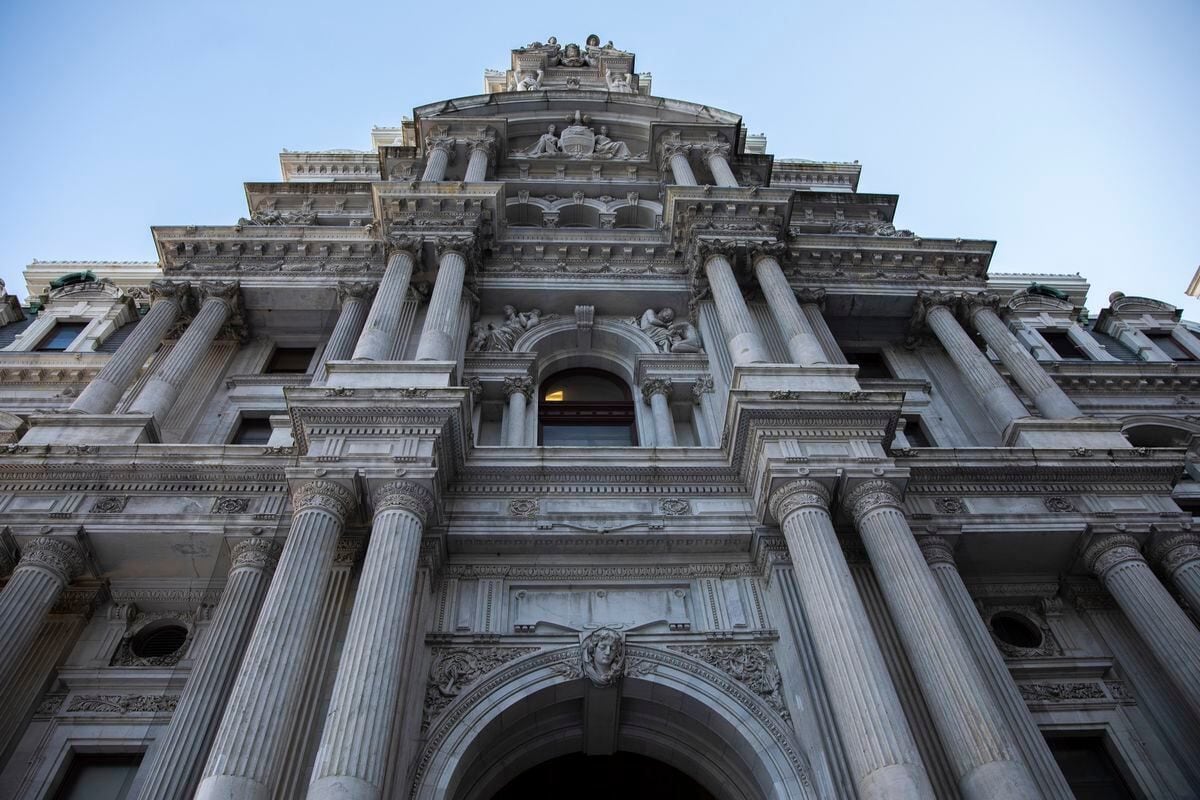
Neverthless, while Covid appears to play into this, it is also provoking other reactions in us. After months of being locked down and entering this digital Matrix to interact with the outside world, many people are being forced to grapple with what they really feel about the digital world. Do you really want to live there for the rest of time? A fearful retreat into the digital is a short-term solution, but not a long-term one. In the long-term it could have severely negative consequences.
The fact that people rush out into the parks at the first available opportunity is testament to the fact that we are biological, social creatures. The longer we stay indoors, the greater the latent desire builds up for contact with the physical, for dancing in sweaty nightclubs, for raucous embraces at football matches, and for pub quiz nights where everyone stuffs a £10 note as an entry fee into a beer glass.
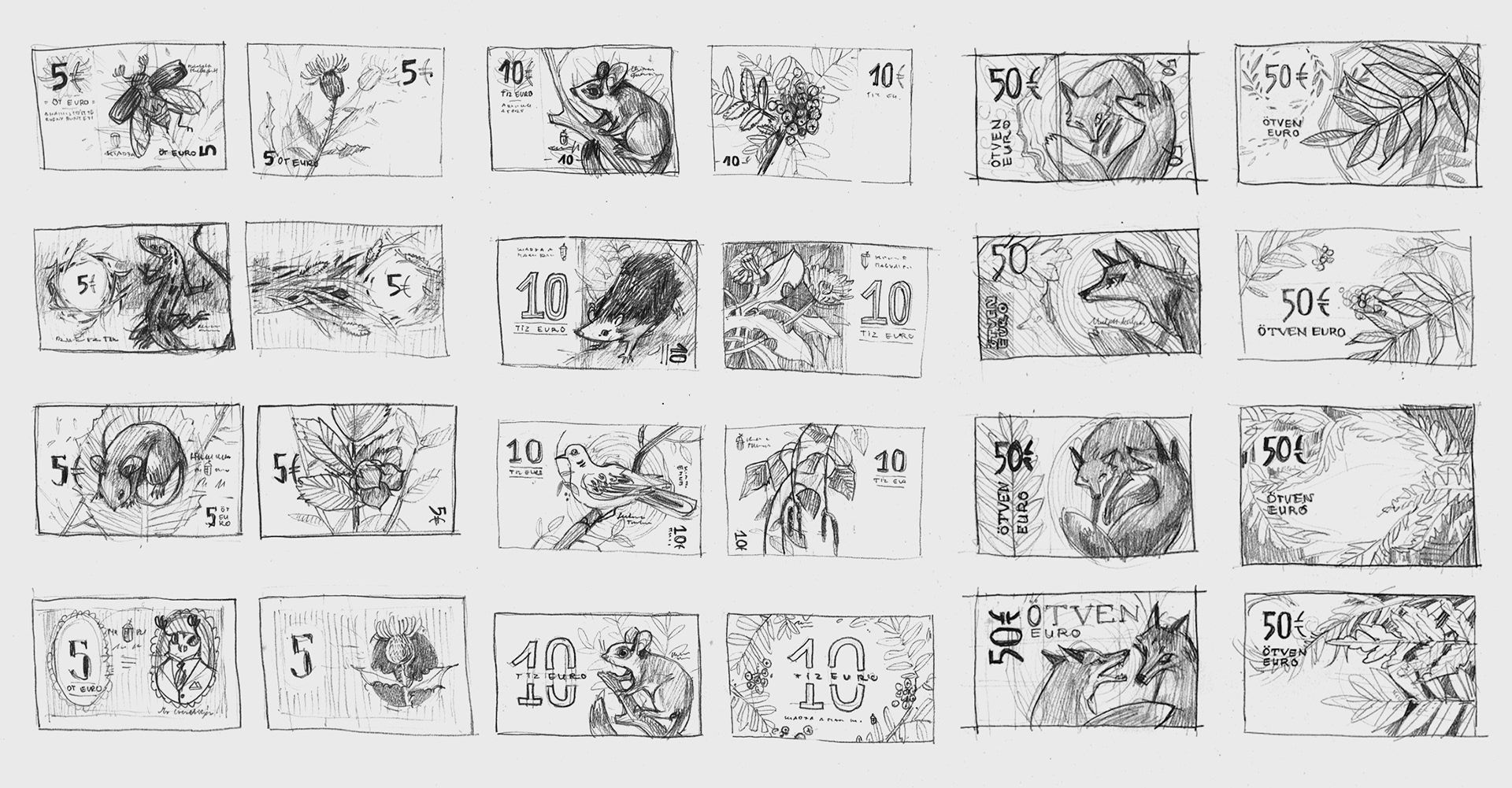
So let's hold our nerve. We will have to learn to touch doorknobs again at some point. We will be more mindful of hygiene, but a sci-fi world of automated doors and remotely initiated digital interactions will never feed the human spirit in the way that a dive bar with swing dancing will. I understand that circumstances force us to experiment with the realm of the digital – and this can be positive, especially when it can be used to cut down unecessary flying (an action which will be needed for the major climate crisis which still awaits ahead of us), but let's use this time to explore positive alternatives to Big Tech, rather than running into their paternalistic arms.
And, please don't succumb to the opportunistic push of the payments industry, as they use this situation to push even more in the War on Cash. Yes, cash is physical, and more present to our bodies than the cold crackle of cyberspace. But we too are physical, and a lot more organic than the digital world and the corporations that preside over it. Cash is not our enemy, and those corporates are not our friends.

This work is licensed under a Creative Commons Attribution-NoDerivatives 4.0 International License.




